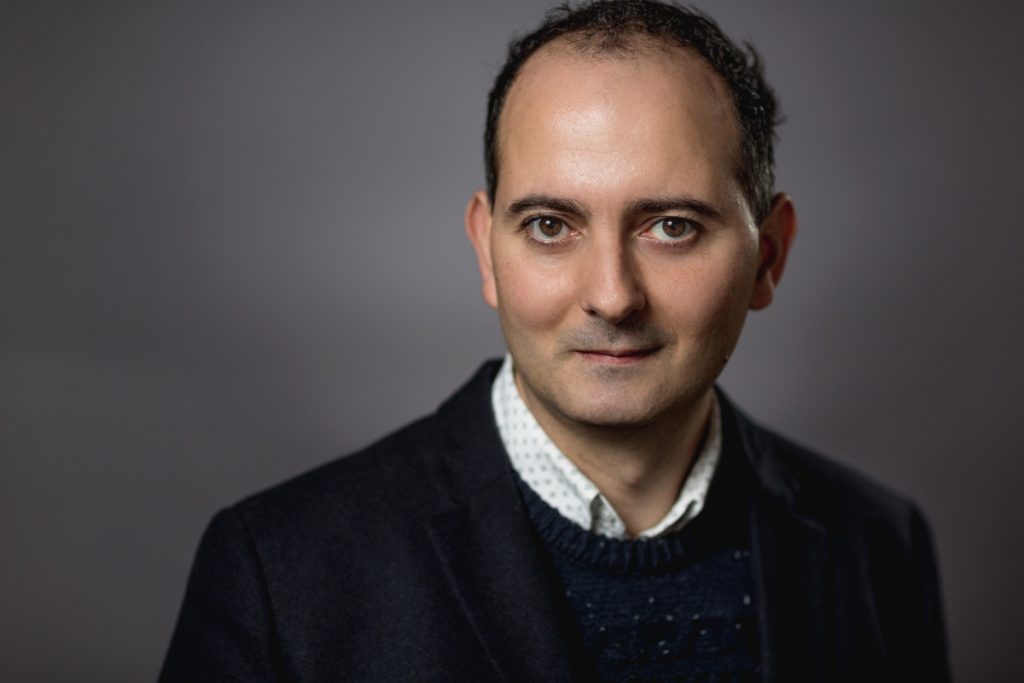A fresh wave of restrictive regulatory measures in the wake of the global pandemic has been approved by the Swedish government but operators, suppliers and even the regulator have all expressed their negative feedback and dissatisfaction at what this will mean both commercially and for players, who many say are likely to be diverted, in even greater numbers, to unlicensed sites.
So what is the future for Sweden? Touted less than two years ago as a great example of regulation done right and a promising market.
We spoke to Andrei Andronic, general counsel at Playson, Fintan Costello, managing director of BonusFinder, Alexia Smilovic, director of compliance and regulated markets at Relax Gaming, Julian Buhagiar, co-founder of RB Capital and Ewout Wierda, general counsel of Videoslots.
CasinoBeats: The proposed measures introduce further restrictions on online casinos – will the regulated offering still be attractive to local players if they are adopted?

AA: Player protection has to be the key priority, so if stronger legal measures are needed that is fine. There has to be a balance between that and making the legal market viable and attractive, however. Excessive enforcement might well miss its original target, which is to ensure players – and vulnerable ones in particular – are not harmed. Generally speaking, players prefer to have as much freedom of choice as possible, whether that’s regarding products, bonuses, stakes, etc. Adopting a very restrictive approach may actually drive players towards alternative markets and that would be totally counter-productive.
FC: Before any additional legislation has been introduced, our own research has shown that almost a third of Swedish online casino players are already searching for “casino utan license” and other similar terms. Players want to get value for their money and maximise their game play time. Launching additional restrictions will just make it impossible for licensed operators to compete against the black market.

AS: The temporary restrictions, effective July 2 are intended to protect active players who are vulnerable to the anticipated economic recession following the COVID-19 crisis. The past year has shown that while such restrictions have fulfilled certain protection objectives, others had an adverse effect; as a growing number of Swedish players have turned to unlicensed casinos in order to sidestep the safeguards.
This proves that the regulated offering is not attractive today, and the current “one-size-fits-all” approach is failing to keep a rather large group of players engaged. The concern is that this new set of restrictions will accelerate the migration of players to the black market.
JB: In one fell swoop, these proposed measures have effectively resurrected the Nordic black market. These measures will not only be unattractive, they will dent channelisation rates further, and drive search demand online for more favourable bonuses and offers.
The issue is that these offers will only be available on unlicensed sites that operate outside of government regulation. Players will then be drawn further into the black-market brands where operators have little to no regulation, player protection is slim to none and all manner of vulnerabilities can be exploited.

EW: We’ve already had a one-time bonus restriction causing a steady increase in online searches for unlicensed operators. The Swedish government has now set a bonus limit which will make the regulated market even less competitive. Limiting deposits is also far less intuitive than a loss limit.
Even if more players try different operators as a short-term side effect of a deposit limit, on balance it will reduce attractiveness for retention of the regulated market. A new Copenhagen Economics study shows that channelisation is expected to drop to around 50 per cent, which means that more than a quarter of players are likely to leave the licensed operators. Sadly, this will include most of the small percentage of players who really need the protection of the regulated market.
CB: Do you expect we will start seeing licensed operators leave the Swedish market soon?
AA: In general, a regulated environment is always the most preferable option. It’s better for players, suppliers and operators, to have higher standards and proper measures in place to ensure everything is fair. When Sweden became a regulated market last year, it seemed like a positive step. Since the very beginning of the licensing regime, the imposition of more restrictions was quickly on the agenda and sanctions were applied from an early stage.
That made the Swedish market challenging in a short space of time. A lot of operators have had a tough time of late. Does it make sense to be in a heavily restricted market in which it is increasingly difficult to operate on the back of that? Probably not. Even the long-standing companies who have been there for a considerable time will be assessing their position.

FC: This is inevitable. Operators are still hanging in there but have significantly lowered advertising spend as a self-regulation measure and many are struggling to encourage brand loyalty with only one welcome bonus per customer. Sweden has a high number of licensees for a small market and with the regulator issuing large and regular fines, we have to assume that brands are considering whether it makes sense to remain in the market which is increasingly becoming tougher to operate in.
AS: It’s difficult to predict whether the level of restrictive measures will deter licensed operators from the Swedish market. I don’t believe that these temporary restrictions, which will be lifted after the December 31, will render the market unviable for them; however, there is always a chance that the next six months might cause some casino operators to throw in the towel, even if the major concerns lie with the medium to long term conditions.
EW: I would be surprised if licensed operators would not adjust their strategy and I think some already have. The most successful licensees are operators who have chosen to be in the world’s ivy league of responsible operators, and many see Sweden as their home market.
The measures will turn their reward for this strategy into a punishment. This will be especially painful because all available data shows that the changes lack justification. If any part of the market needs preventative measures, it is horseracing betting. The amendments diminish the legal certainty that regulated operators rightly expect. It is arguable that they will also return Sweden back to its former grey market status.

JB: Quite probably. Despite the market promising so much when it launched it January 2019, listed licensees have been struggling to generate consistent profit levels ever since, and the downward slide has been evident for several months.
Tier one operators such as Kindred Group may have reported year-on-year increases in revenue for the first half of the financial year, but they and several other Swedish licensees have seen their profits fall sharply due to regulatory costs and higher marketing spend in Sweden.
The impact of the new regulatory changes has yet to be seen but I would not be surprised to see a reduction in activity and marketing spend in the short to medium term with companies having to cope not only with further restrictive measures, but also further economic challenges elsewhere. These changes have come at the worst possible time and will cause many to reconsider their long-term strategies.
CB: While the Swedish legislation looked promising at the start, the market has proven tough because of rules and regulation, why do you think the government has taken this approach and how damaging is it for the industry?
AA: Their thought in imposing restrictions might have been to protect players. I’m not sure that all the implications of the legislation that followed were taken into consideration. As part of any well-legislated market, the regulator should always partner with the industry to find the best way forward.
That creates a safe environment for the consumer, but also allows the market to flourish and companies to have a viable business. An exaggerated approach to regulation that is then imposed on the market rather than talked through is the opposite of that collaborative approach. Unfortunately, you reap what you sow.
FC: The Swedish government rightly drafted its legislation with a focus on player protection, but they struck a balance in introducing operator friendly conditions such as an 18 per cent GGR tax. The devil was in the detail, however as it’s regulation that requires operators to limit their bonus offerings which has made the market less attractive for brands and players.
Unfortunately, as we have seen in several other countries, these decisions are often taken by officials with limited knowledge of the market and without first consulting the industry. As a result, the Swedish market has not lived up to its initial expectations and a widening black market exists. This creates a situation that is damaging for licensed operators and dangerous for local players.
AS: Most of the regulation objectives initially drawn up by the Swedish government were quite standard, aiming to support a high operator channelisation rate. Since then, however, the applied mindset has fundamentally changed, shifting from aspiring to create a functional gambling environment to one that is more controlling, with an acute focus on enforcement.
This has been incredibly damaging to the industry as the operators embracing regulation, taking players’ protection and their social responsibility role seriously, are more exposed to penalties than their unlicensed competitors operating in the black market.
They’re facing difficult operating conditions and get minimal support from the government to achieve successful player channelisation. In my opinion, the paradoxical aspects of this enforcement undermine the regulation’s success and the legislator should close these functional gaps to ensure better player protection performance.
JB: In fairness to Swedish legislators, they could not have foreseen the makings of such a perfect storm, but they should be criticised on their ability to react quickly once the extent of the quagmire became evident.
Every new market takes time to bed in, but the new regulatory measures that have emerged in Sweden have both been brought on by and exacerbated by the COVID-19 situation, and the attention this has brought to alleged rises in cases of problem gambling.
Swedish regulators have always been focused on player protection, but if studies of gamblers in other markets during lockdown showing participation has decreased are to be believed, then Sweden’s measures could well prove to be overly protective, and ultimately damaging to both player safety and the sustainability of the market.
EW: The simplistic nature of the proposals suggests that gambling has again proven to be an easy target for political gain. It also seems meaningful that the state-controlled monopoly on horse racing will be the only beneficiary of the amended proposals.
Whatever the real reasons may be, it is clear that the data available does not justify the proposals. Any damage to the industry is therefore disproportionate, and the online casino licence holders will suffer a reduction of market volume that would be unprecedented in a regulated market.










